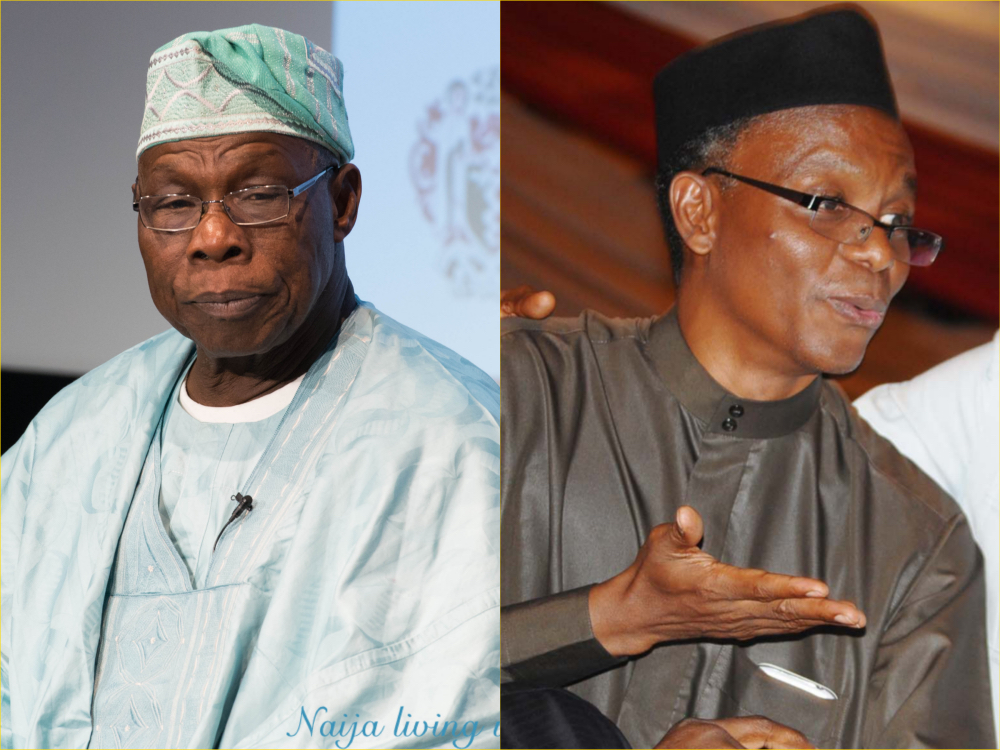Olusegun Obasanjo, former president, and Nasir el-Rufai, governor of Kaduna state, have been accused of inflating and illegally approving the Abuja rail project.
The senate oversight committee said on Monday, February 15, 2015 that the former president and his minister of Federal Capital Territory (FCT) signed the project with over $195 million inflation.
Here are five infractions identified by the committee.
CONTRACT AWARDED WITHOUT DESIGN
During a visit to CCE, the Chinese company handling the rail project, the senate committee was told that Obasanjo and el-Rufai signed the contract without a planned design.
“The contract was awarded based on conceptual design and estimates were not properly done. There was no formal design submitted and rail bridges and crossover bridges were not captured in the contract,” Etim Abak, project manager of CCE, said.
PROJECT AWARDED WITH MOU
A memorandum of understanding (MOU) is the first step in sealing a contract. It is given weight in the sight of the law, and can be respected in a court of law should one party fail to meet the obligations of the memorandum.
The Abuja rail is said to have been awarded without an MOU. By implication, CCE could decide to abandon the project and there may be nothing a court can do in compelling the company to complete the project.
INFLATED TO THE TUNE OF N13 BILLION
In his response to CCE, Dino Melaye, chairman of the senate committee on FCT, said the project had been inflated excessively.
“I would want to say that I did a personal research and looked at rail construction of the same specifics, of the same technology across the globe and one cannot but complain that this railway project in Nigeria is on a very high side,” he said.
“From our research and it’s very simple, the world is now a global village. As you are sitting here now, on your phone, you can google even in India and Egypt. Fortunately, one of those projects in Zambia was also done by this same company, CCE.
“We have six countries and the average cost per kilometre, none is $4 million per kilometre. Why is the Nigerian project costing $13.8 million approximately $14 million dollars per kilometre.”
Going by Melaye’s figures, about $10 million was added as inflation on every kilometre, translating into $450 million for 45 kilometres and $670 million (N13 billion) for 67 kilometres.
REDUCTION WITHOUT COMMENSURATE REFUND
Melaye also said the length of the project was reduced by about 15 kilometres with no commensurate refund.
“You have reduced the length of the kilometre standard gauge from 60.67 kilometres to 45.245 kilometres. Meanwhile, there is no concomitant reduction if you juxtapose the length of kilometres and the reduction in terms of the cost,” he said.
“If we are to spend $841 million for 60.67 kilometres and now you have reduced to 45.245 kilometres and the only reduction in terms of monetary value is from $841.6 million to $823 million and with reduction of just about $17 million that to me is not commensurate to the reduction in terms of length.”
The committee however demanded a refund of $195.8 million (N3.87 billion) for the 15-kilometre reduction of the rail length.
QUESTIONABLE LENDING OF $500M
According to the committee, the project also shows that $500 (N9.9 billion) was borrowed from Exim Bank of China for the rail, after all the billions being pumped into the project by the federal government. The committee questioned the rationale behind the lending, arguing that the monies pumped into the project by the federal government was enough to run the project.
(Hattip to The Cable)







